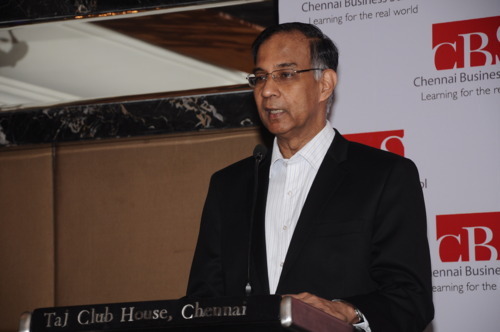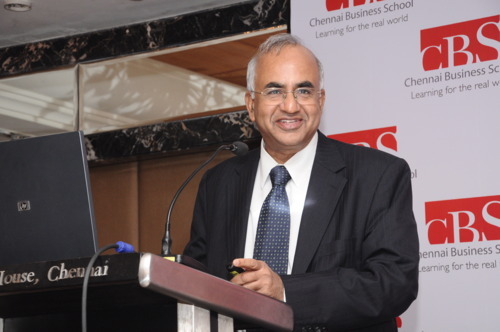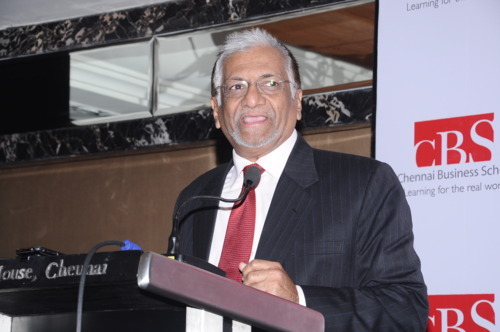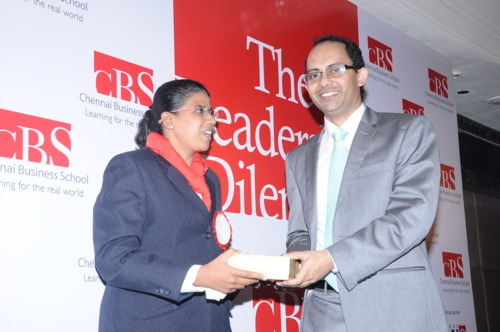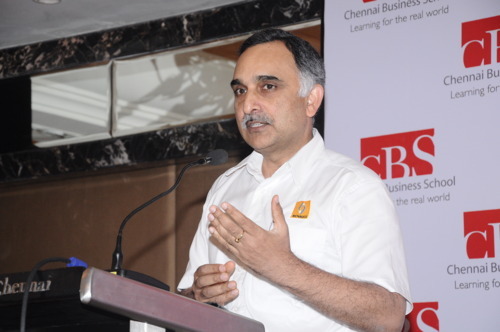Welcome to Chennai Business School

Chennai Business School (CBS) is an institution dedicated to creating ‘industry-ready’ managerial talent. CBS offers training in India’s exponentially growing verticals – Information Technology, Retail, Finance and Financial Services and International Management. CBS also offers focused learning in strategic areas of management – Human Resources and Marketing & Communications.
One of the first management institutions to be established and run by professionals from the industry, CBS started in 2006, offers Programs that are supported by contemporary infrastructure, industry-orientation, latest teaching methodologies and high-profile faculty, both from academia and industry.
Professionals are professors
The teaching fraternity at CBS is strongly oriented towards industry needs. Indeed there is a high degree of hands-on involvement by senior industry professionals who have won their spurs the hard way.
Industry approvalThe teaching fraternity at CBS is strongly oriented towards industry needs. Indeed there is a high degree of hands-on involvement by senior industry professionals who have won their spurs the hard way.
CBS placement record certainly underscores the welcome acceptance of its one year management qualification. CBS has also been entrusted with training students who have been identified for employment by corporates.
Unique course structure
Being industry focused, the curriculum embraces sound management theory and real life, real time management issues in the business world. The intensive 1,100 hour course is intended to provide a challenge to the students.
Executive education
CBS has designed an executive Education Program with a view to help corporates empower their managers with enhanced managerial skills. This initiative has been kicked off with a specialized program for Sutherland Global Services.



